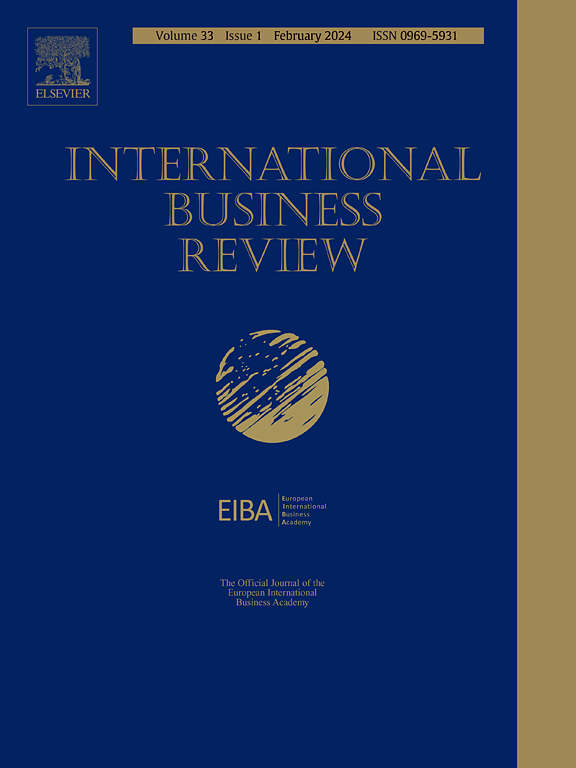Cultural dimensions and corporate controversies: The moderating role of corporate governance
IF 6.1
1区 管理学
Q1 BUSINESS
引用次数: 0
Abstract
This study examines the relationship between national culture, defined by Hofstede's cultural dimensions, and corporate controversies across countries, while assessing the influence of firm-level corporate governance on moderating this connection. It finds more likelihood of controversies in cultures characterized by individualism, femininity, high power distance, low uncertainty avoidance, short-term orientation, and indulgence. Notably, certain CG mechanisms—especially board independence and a higher presence of female directors—can help reduce firms’ involvement in controversies, though their moderating effects vary across different cultural contexts. Furthermore, enhancing our baseline analysis, we categorize corporate controversies, analyse the influence of cultural traits on each category, and highlight specific cultural combinations associated with a decreased risk of controversies. Our findings underscore the complex interplay of cultural influences and governance structures in the ethical operations of cross-country firms.
文化维度与公司争议:公司治理的调节作用
本研究考察了国家文化(由Hofstede的文化维度定义)与跨国公司争议之间的关系,同时评估了公司层面的公司治理对调节这种联系的影响。研究发现,在以个人主义、女性化、高权力距离、低不确定性规避、短期导向和放纵为特征的文化中,更有可能发生争议。值得注意的是,某些CG机制——尤其是董事会独立性和女性董事的增加——可以帮助减少公司卷入争议,尽管它们的调节作用在不同的文化背景下有所不同。此外,为了加强我们的基线分析,我们对企业争议进行了分类,分析了文化特征对每个类别的影响,并强调了与降低争议风险相关的特定文化组合。我们的研究结果强调了跨国公司道德运营中文化影响和治理结构的复杂相互作用。
本文章由计算机程序翻译,如有差异,请以英文原文为准。
求助全文
约1分钟内获得全文
求助全文
来源期刊

International Business Review
BUSINESS-
CiteScore
14.10
自引率
6.90%
发文量
95
审稿时长
62 days
期刊介绍:
The International Business Review (IBR) stands as a premier international journal within the realm of international business and proudly serves as the official publication of the European International Business Academy (EIBA). This esteemed journal publishes original and insightful papers addressing the theory and practice of international business, encompassing a broad spectrum of topics such as firms' internationalization strategies, cross-border management of operations, and comparative studies of business environments across different countries. In essence, IBR is dedicated to disseminating research that informs the international operations of firms, whether they are SMEs or large MNEs, and guides the actions of policymakers in both home and host countries. The journal warmly welcomes conceptual papers, empirical studies, and review articles, fostering contributions from various disciplines including strategy, finance, management, marketing, economics, HRM, and organizational studies. IBR embraces methodological diversity, with equal openness to papers utilizing quantitative, qualitative, or mixed-method approaches.
 求助内容:
求助内容: 应助结果提醒方式:
应助结果提醒方式:


